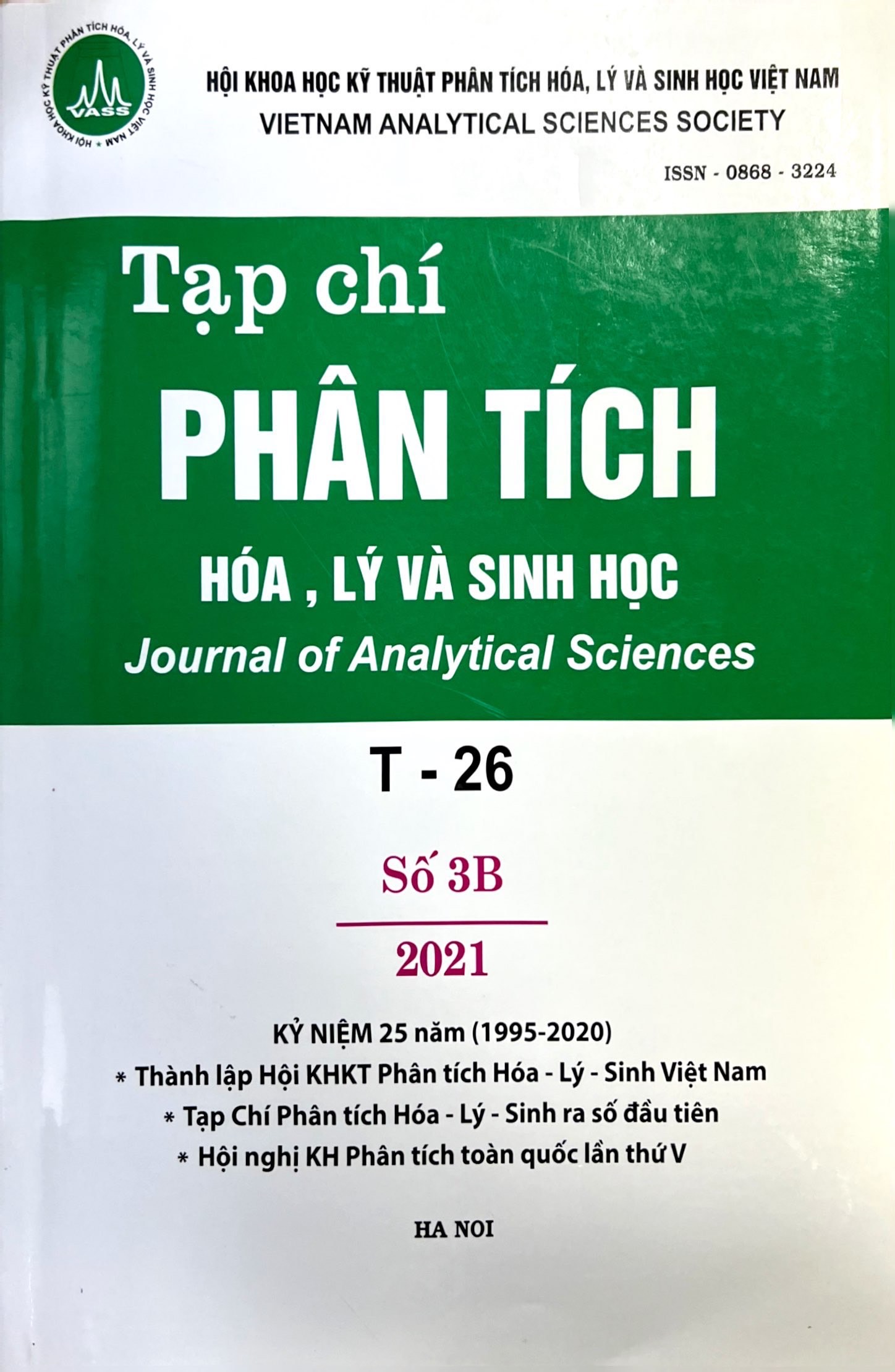PHÂN TÍCH CÁC ĐẶC TRƯNG HÓA HỌC CỦA MẪU BỤI ĐƯỜNG NỘI THÀNH HÀ NỘI - TỐI ƯU HÓA CÁC ĐIỀU KIỆN PHÂN TÍCH KIM LOẠI TRÊN THIẾT BỊ ICP-MS BẰNG PHƯƠNG PHÁP KHẢO SÁT ĐA BIẾN
Tóm tắt
This study presents a response surface methodology (RSM) to find the experimental optimum conditions
of an inductive couple plasma mass spectroscopy (ICP-MS) for simultaneous analysis of 23 elements
including 5 elements of platinum group (Ru, Rh, Pd, Ir, Pt) and 18 other metals (Sb, Au, Hf, Te, Sn, Ti,
Cr, Mn, Fe, Co, Ni, Cu, Zn, Sr, Mo, Cd, As, Pb). Three main parameters of the ICP / MS system that
greatly affect the analytical signal include radio frequency power, nebuliser gas speed and the ion lens
potential that are simultaneously varied during the experiments. Box – Behnken quadratic experimental
model with 20 experiments conducted at the center and star points that allows to overcome the
disadvantages of the previous univariate method, which is to examine each influencing factor for all
elements. That way lead to difficulty combine the suitable conditions to find the general optimum
conditons. Based on the quadratic mathematical model, only the influencing factors that are
statistically significant are retained. The optimisation obtained by using the desirability algorithm of
each regression function and the composit desirability D for all regressions. The optimum values
determinaed for radio frequency power, nebulizer gas flow, and lens potential were 1260 W, 1 L min-1,
and 11 V on the Elan 9000 (Perkin – Elmer), respectively. Following the results of this paper, the RSM
will continue to be applied to optimize road dust sample preparation using the microwave technique.
The analytical procedre will be validated to determine the chemical chracterization of road dust
samples collected in Hanoi urban area.

